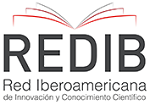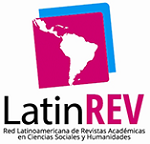Organizational culture - assertiveness - empowerment of knowledge in the community of the nursing program at the Universidad de Santander Cúcuta campus
DOI:
https://doi.org/10.15649/2346030X.3265Keywords:
organizational culture, assertiveness, empowerment, nursing program, University of SantanderAbstract
Organizational culture has become a significant element in different organizations of any kind, in this case framed in the linkage that is presented with the nursing program at the University of Santander Cúcuta; because within the trends and managerial innovations arises the need to handle the different concepts and theories that currently make mention of organizational culture to provide nursing professionals with tools and of course components that allow them a better education, training and professional performance. Reason that converges in the following general objective: To analyze the Pedagogical Mediator on the Organizational Culture for the Assertiveness and Empowerment of Knowledge in the Academic Community of the Nursing Program of the University of Santander Campus Cúcuta. The methodology used was framed in mixed approaches (quantitative and qualitative), where a documentary analysis and a description of the variables were worked, plus the appreciations of the key informants, which led to assume a set of knowledge referred to the pedagogical mediator with hypertextual and hypermedial strategies, which allowed dynamizing the academic processes, optimizing time, resources and strengthening the organizational culture to achieve the assertiveness and empowerment of knowledge in the community; which left structured the different ontological components.
References
E. Montecinos, «Cuarta revolución industrial y la administración pública en América Latina.,» Revista Venezolana de Gerencia de la Universidad del Zulia, vol. 26, nº 93, pp. 10-32, 2021.
L. García, Constructos Teóricos sobre la Acción Transformadora del Docente Universitario Andragogo, Universidad Bicentenaria de Aragua., 2016.
C. Guerrero, «Influencia de la Cultura Organizacional en la Competitividad de las Empresas,» vol. 9, nº 1, pp. 18-23, 2011.
E. A. Espinosa Ríos, «Los mediadores pedagógicos en la enseñanza de las ciencias: la implementación de un programa educativo multimedia en la enseñanza del sistema circulatorio,» Revista el Hombre y la Máquina, nº 32, pp. 20-37, 2009.
O. D. Toledo, teoría global sobre el aprendizaje, 2018.
Santaella, «La pedagogía Freinet como alternativa al método tradicional de la enseñanza de las ciencias,» Profesorado, vol. 4, nº 21, pp. 359-379, 2017.
Cantillo-Guerrero, «Influencia de la Cultura Organizacional en la Competitividad de las Empresas,» Escenarios, vol. 1, nº 9, pp. 18-23, 2011.
F. Kereki, Modelo para la Creación de Entornos de Aprendizaje basados en técnicas de Gestión del Conocimiento, 2013.
E. Montero, «Tutor virtual a distancia: ¿gestor de información o gestor de conocimiento? Investigación, Sociedad y Desarrollo,» vol. 4, nº 1, pp. 2-27, 2016.
R. F. C. y. B. P. Hernández, Metodología de la investigación, McGraw Hill., 2014.
P. y. O. G. Páramo, «Investigación alternativa por una distinción entre posturas epistemológicas y no entre métodos,» Cinta moebio, nº 25, pp. 1-7, 2006.
M. Martínez, La investigación cualitativa etnográfica en educación, Manual teórico-práctico. Texto SRL., 1991.
C. F. Ortega Barba, «Cibertrónica. Aprendiendo con tecnologías de la inteligencia en la web semántica,» Revista de la Educación Superior, XLIII, vol. 2, nº 170, pp. 161-164, 2014.
W. Iño, «Investigación educativa desde un enfoque cualitativo: la historia oral como método,» Voces de la educación, vol. 3, nº 6, pp. 93-110, 2018.
E. y. T. D. Espinoza, Ediciones Ut, 2015.
C. Calderón, «Evaluación de la calidad de la investigación cualitativa en salud: criterios, proceso y escritura,» Fórum Qualitative Social Research, 2009.
C. S. J. y. M. G. Uzcátegui, «Cultura Organizacional Y Rendimiento Empresarial De La Pyme Turística De La Provincia De El Oro.,» XI Congreso Virtual Internacional Turismo y Desarrollo/ VII simposio virtual Internacional Valor y Sugestión del Patrimonio Artístico y Cultural, 2017.
U. d. S. UDES, «Facultad de Ciencias Médicas y de la Salud y Enfermería,» 2021.
T. M. d. E. C. c. l. m. d. s. c. Wilson, «2000,» Barcelona: Gestión 2000..
M. y. P.-C. L. F. Veciana-Pita, «Las TIC como instrumento de mediación pedagógica y las competencias profesionales de los profesores,» VARONA, nº 56, pp. 15-22, 2013.
I. G. Torres Pacheco, «Aproximación Epistémica a la Cultura Organizacional Educativa Venezolana. Paradigma,» vol. 1, nº 37, pp. 61-75, 2016.
Downloads
Published
How to Cite
Issue
Section
Altmetrics
Downloads
License
Copyright (c) 2023 AiBi Journal of Research, Administration and Engineering

This work is licensed under a Creative Commons Attribution 4.0 International License.
The journal offers open access under a Creative Commons Attibution License

This work is under license Creative Commons Attribution (CC BY 4.0).












